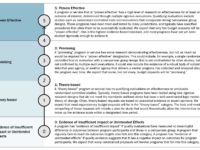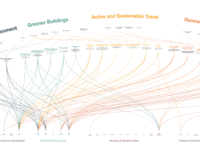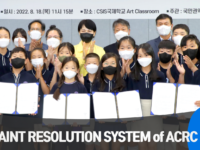The innovation consisted in implementing a policy delivery methodology (Deliverology(R)) in 14 public primary healthcare establishments of Cusco’s Northern health network. The aim was to transform the service culture and improve prenatal, postpartum, family planning, and pediatric care indicators in only 5 months, benefiting 22,900 low-income patients.
Innovation Tag: Public Policy
The UK government launched a new “youth hub” offer of employment services to young people affected by the disruption of the covid-19 pandemic. Through four days of workshops with key stakeholders, which included engaging young people, Impetus ran a theory of change process to enable one of the flagship hubs to co-design their new service to best serve young people. This is the first time that Impetus has applied its theory of change tools, and its impact focus to a government policy…
Governments must judge hundreds of new programmatic budget proposals each fiscal year with little objective information about whether they will achieve the results claimed. Evidence of program effectiveness is a critical data point that is used when making budget and policy decisions, as programs with greater evidentiary support are generally more likely to deliver a high return on investment of public funds. The The Policy Lab at Brown University leveraged existing public clearinghouses of peer…
The UK Government Policy Profession has piloted a new model called Shared Policy Capability Project to support department leaders and policy makers undertake a facilitated self-assessment of their policy environment and identify opportunities for improvement. Through this the government aims to build capability at a department level and enable policymakers to take an active role in improving the environment in which they make policy.
Case Study
School-Effect Indicator: An analysis of schools, using artificial intelligence, according to the…

The São Paulo State Court of Auditors built a new analysis methodology, the School-Effect Indicator (IEE), which includes factors such as the socioeconomic status of students in the evaluation of school effectiveness. Through Artificial Intelligence (AI), it is calculated how much the school has contributed to the competence of its students, highlighting the principle of equity, recognizing the needs of each school group and working to reduce the impact of differences.
The Buenos Aires City Government launched Climate Action, an open data platform that brings together energy efficiency, sustainability and waste management policies to combat climate change in the city. The platform is based on transparency, co-creation, collaboration, citizen participation, accountability and innovation. BA Climate Action was co-created with civil society organizations, environmental experts and citizens.
The TAP portal is a unique e-government system at the European Union level, which ensures the development of digital government legislation, moving from documents to structured data. The TAP portal ensures the proceedings of the meetings of the Cabinet of Ministers and allows every citizen of Latvia to follow the progress of the Government's decision-making and express an opinion on the regulatory acts being developed by the Government.
Achieving carbon neutrality requires collective action involving businesses and residents and encouraging them to participate in local governance processes. The most immediate challenge to enable collaboration is to effectively communicate the multiple lines of actions and operational objectives. The Visual Action Plan gives a holistic overview helping public officers to collaborate internally and externally.
South Korea’s National Ombudsman Institution, Anti-Corruption and Civil Rights Commission (ACRC) is the only public agency in the country that handles all civil collective complaints against governments. ACRC’s collective complaint resolution effectively coordinates and mediates complicate large-scale complaints and suggests alternatives agreed by all parties. The system protects citizens from the infringement of rights and interests and prevents the occurrence of social conflicts.
The AJSC has developed a new model to measure the determinants of the ‘quality of life’ in Ajman, covering six key areas of public service. The Model comprises a comprehensive factor measurement framework embedded on a sophisticated web-based application, with inbuilt protocols for scientific data collection, project management, data visualization and reporting. It systematically measures gaps and impact of interventions, via targeted performance assessment of framework factors.







